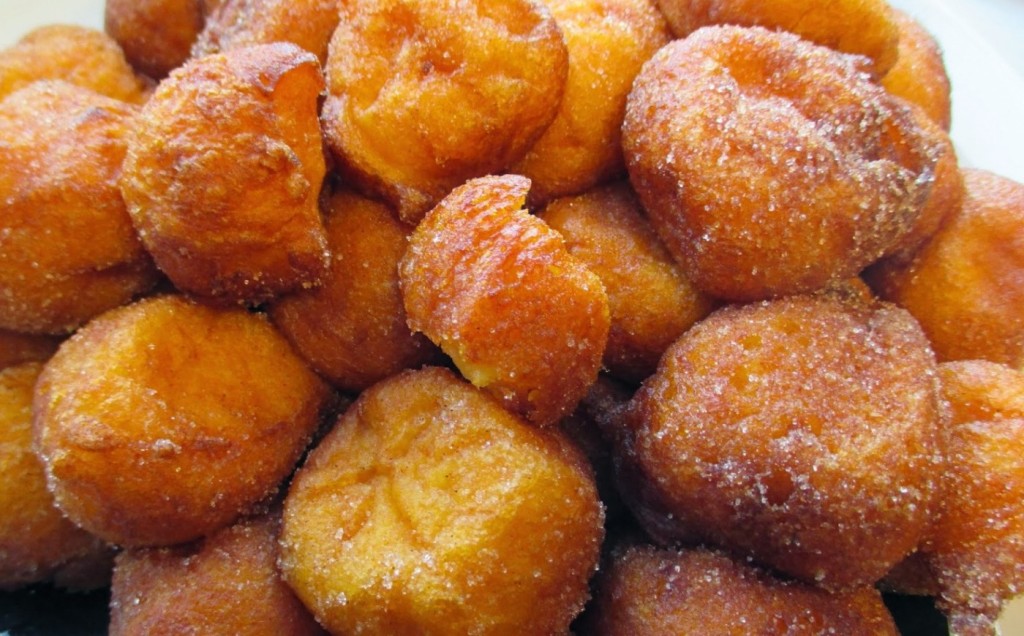"Ganmodoki" can be loosely translated as "that which resembles goose". Not a very appetizing name eh? But it is quite yummy. Ganmodoki is one kind of "shoujin-ryori" (精進料理), the food that Zen monks eat. They do not eat meat and so they have this kind of food made from tofu and other non-meat ingredients.
n the Kansai region, this dish is also called "Hiryouzu" (飛龍頭)...literally translated as "flying dragon head"...but really, it is just the Japanese phonetic equivalent for the Portuguese snack called "filhós" -- a kind of fritter made from flour, eggs and, oftentimes, pumpkin. In Portugal, they are a traditional Christmas dessert.
They do look similar!
Our version of this dish uses ingredients readily available in Halifax (and North America, in general) whilst hopefully still preserving its Japanese-ness. It brings together simple yet savoury ingredients including shrimp, bacon, green onions and mushroom, all in a tofu base. The tofu's neutral flavour helps tone down the intensities of each filling, while allowing their distinct flavours to come out and be appreciated. These patties are also highly versatile; you can customize your ganmodoki with the ingredients of your choice. Once you master the base, make it your own and experiment with different ingredients. The possibilities are endless!
Ingredients (makes about 10-12 fritters):
The Fillings (finely chopped):
fresh green onion
fresh shiitake mushroom
shrimp (pre-cook)
bacon (pre-cook to crunchy!)
fresh coriander leaves
etc...
Cooking oil for deep frying
The Base:
1 block [450g] tofu (firm)
1 egg
2 tablespoons corn starch
1 teaspoon sesame oil
1 teaspoon soy sauce
pinch or two of salt
The Dipping Sauce:
soy sauce
ginger
Procedure:
- Take tofu out of the pack and leave out for at least 30 minutes. Excess water will come out. Discard the excess water.
- Beat the egg.
- In a mixing bowl, mash the tofu with a whisk or with your hands (recommended).
- Add the other Base ingredients: egg, corn starch, sesame oil, soy sauce, and salt... plus, your preferred Fillings. Continue mixing. If it seems watery, you can add more corn starch.
- Form into mini-fishcake-like patties.
- Deep fry until light brown. Careful not to over-fry or else the outer layer becomes tough.
- Make the sauce by grating a bit of ginger and mixing it with soy sauce in a sauce dish.
Itadakimasu!








